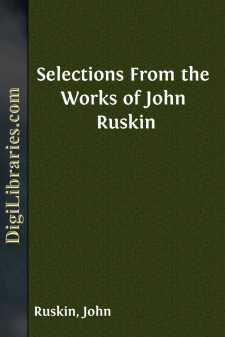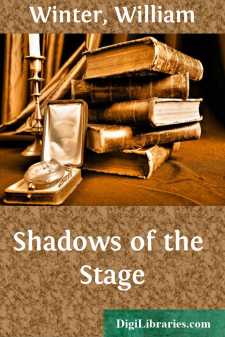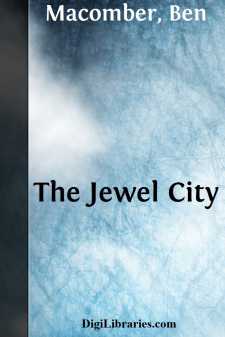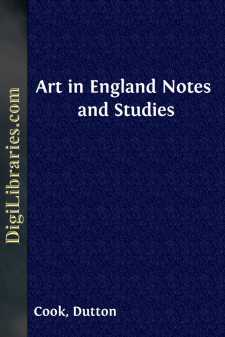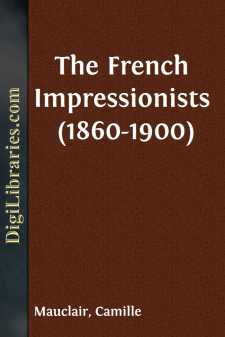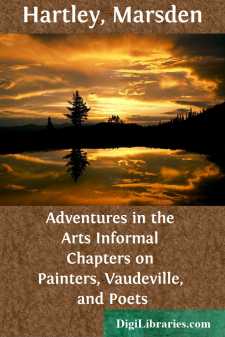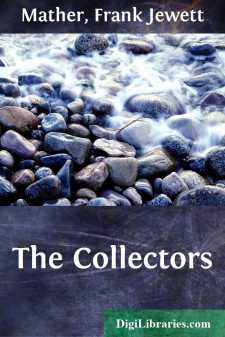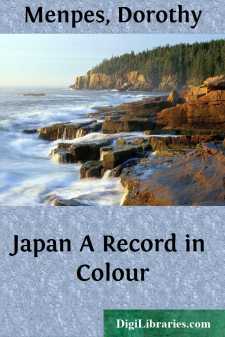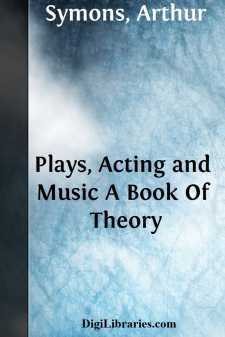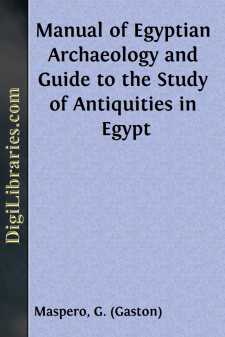Art
- African 1
- Asian 2
- Collecting 1
- Collections, Catalogs, Exhibitions 6
- Criticism 2
- European 8
- General 14
- History 11
- Middle Eastern 1
- Sculpture 4
Art Books
Sort by:
by:
John Ruskin
Introduction Two conflicting tendencies in Ruskin. It is distinctive of the nineteenth century that in its passion for criticising everything in heaven and earth it by no means spared to criticise itself. Alike in Carlyle's fulminations against its insincerity, in Arnold's nice ridicule of Philistinism, and in Ruskin's repudiation of everything modern, we detect that fine dissatisfaction...
more...
by:
William Winter
THE GOOD OLD TIMES. It is recorded of John Lowin, an actor contemporary with Shakespeare and associated with several of Shakespeare's greater characters (his range was so wide, indeed, that it included Falstaff, Henry the Eighth, and Hamlet), that, having survived the halcyon days of "Eliza and our James" and lingered into the drab and russet period of the Puritans, when all the theatres...
more...
by:
Ben Macomber
Introduction No more accurate account of the Panama-Pacific International Exposition has been given than one that was forced from the lips of a charming Eastern woman of culture. Walking one evening in the Fine Arts colonnade, while the illumination from distant searchlights accented the glory of Maybeck's masterpiece, and lit up the half-domes and arches across the lagoon, she exclaimed to her...
more...
by:
Dutton Cook
EARLY ART SCHOOLS IN ENGLAND. harles the First appears to have been the first English Sovereign who regarded art, not merely as an aid to the splendour of the throne, but for its own sake. As Walpole says, 'Queen Elizabeth was avaricious with pomp, James the First lavish with meanness.' To neither had the position of the painter been a matter of the slightest concern. But from Charles the...
more...
by:
Camille Mauclair
I THE PRECURSORS OF IMPRESSIONISM—THE BEGINNING OF THIS MOVEMENT AND THE ORIGIN OF ITS NAME It will be beyond the scope of this volume to give a complete history of French Impressionism, and to include all the attractive details to which it might lead, as regards the movement itself and the very curious epoch during which its evolution has taken place. The proportions of this book confine its aim...
more...
by:
Marsden Hartley
Perhaps the most important part of Criticism is the fact that it presents to the creator a problem which is never solved. Criticism is to him a perpetual Presence: or perhaps a ghost which he will not succeed in laying. If he could satisfy his mind that Criticism was a certain thing: a good thing or a bad, a proper presence or an irrelevant, he could psychologically dispose of it. But he can not. For...
more...
A BALLADE OF ART COLLECTORS Oh Lord! We are the covetous. Our neighbours' goods afflict us sore.From Frisco to the Bosphorus All sightly stuff, the less the more,We want it in our hoard and store. Nor sacrilege doth us appal—Egyptian vault—fane at Cawnpore— Collector folk are sinners all. Our envoys plot in partibus. They've small regard for chancel door,Or Buddhist bolts...
more...
by:
Dorothy Menpes
CHAPTER I ART AND THE DRAMA I always agree with that man who said, “Let me make the nation’s songs and I care not who frames her laws,” or words to that effect, for, in my opinion, nothing so well indicates national character or so keenly accentuates the difference between individuals and nations as the way in which they spend their leisure hours; and the theatres of Japan are thoroughly typical...
more...
by:
Arthur Symons
INTRODUCTION[2][3] After seeing a ballet, a farce, and the fragment of an opera performed by the marionettes at the Costanzi Theatre in Rome, I am inclined to ask myself why we require the intervention of any less perfect medium between the meaning of a piece, as the author conceived it, and that other meaning which it derives from our reception of it. The living actor, even when he condescends to...
more...
CHAPTER I. ARCHITECTURE--CIVIL AND MILITARY. Archaeologists, when visiting Egypt, have so concentrated their attention upon temples and tombs, that not one has devoted himself to a careful examination of the existing remains of private dwellings and military buildings. Few countries, nevertheless, have preserved so many relics of their ancient civil architecture. Setting aside towns of Roman or...
more...


